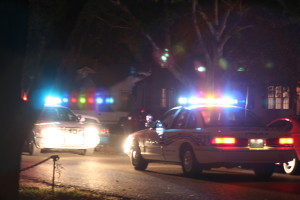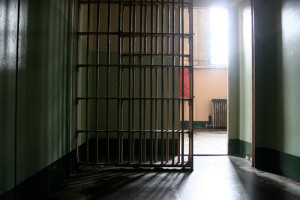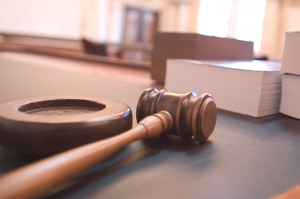Illinois criminal defendants have a guaranteed right to a speedy trial under Illinois state law. Depending on the circumstances, a defendant must be brought to trial within 120 to 160 days following his arrest. There are also situations that can stop the speedy trial clock from running. If you’ve been arrested and charged with any crime in Illinois, you need an experienced criminal defense attorney who understands the time limits, the exceptions, and when it is to your benefit to invoke (or not invoke) the right.
Illinois Right to Speedy Trial in Criminal Cases
Under Section 725 ILCS 5/103-5, Illinois guarantees criminal defendants a speedy trial. The time limit varies depending on the circumstances. The defendant must make a formal written request with the court to invoke his speedy trial rights.
If the defendant is in jail, the state has 120 days from the date he was taken into custody to bring the case to trial. If the defendant is out on bail or released on his own recognizance, the state has 160 days to bring the case to trial. There must also be one continuous period of incarceration. For example, if you are released from jail after 30 days because you made bail, but are then re-arrested for violating a condition of bail, the clock starts over.
If the prosecution does not bring the case to trial within the above time limits, the defendant must be released from custody or released from his bail requirements.
Exceptions to the Illinois Right to Speedy Trial
 The right to a speedy trial is an affirmative right. This means that in order for the clock to start running, you must invoke the right. The clock will stop running if you request a continuance for any reason, including an evaluation to determine your fitness for trial. This is why an experienced criminal attorney will usually try to have a continuance based on the State’s motion or order of court.
The right to a speedy trial is an affirmative right. This means that in order for the clock to start running, you must invoke the right. The clock will stop running if you request a continuance for any reason, including an evaluation to determine your fitness for trial. This is why an experienced criminal attorney will usually try to have a continuance based on the State’s motion or order of court.
The prosecution may request a 60-day extension if, after exercising due diligence, it is unable to obtain material evidence and there are reasonable grounds to believe that granting a continuance will allow the prosecution to obtain that evidence.
In 2013 the Illinois Supreme Court ruled that the 60-day extension provision of the law can be given more than once. The ruling came in the case People v. Lacy. The defendant, Elijah Lacy was arrested and charged with murder in the 2007 death of a Carbondale, Illinois woman. Police arrested Lacy in 2009, and he was brought to trial in 2010 after Lacy requested several continuances.
The prosecution requested a continuance because the eyewitness, who lived in Missouri, was unable to travel due to a high risk pregnancy and would be unavailable for the trial date. The court granted the continuance and rescheduled the trial.
The prosecution requested a second continuance when its key police witnesses was deployed to Afghanistan and would be unavailable to testify. Lacy’s attorneys then filed a motion for the case to be dismissed because the two continuances exceeded the 60-day extension allowed under law. The trial court granted Lacy’s motion, and the appellate court agreed.
The Illinois Supreme Court reversed the dismissal and ruled that the law allows the prosecution a 60-day continuance for each piece of material evidence. In Lacy’s case, that meant that the prosecution was entitled to one 60-day continuance until the eyewitness would be able to testify, and a second 60-day continuance to allow the police witness to return from Afghanistan.
There are pros and cons of invoking the right. It may be to your advantage to allow the prosecution to take as much time as necessary, especially if the case against you is based largely on eyewitness testimony. As time goes on, memory fades, increasing the chance that the eyewitness will forget key details or change his testimony when compared to his initial statement. An experienced criminal defense attorney like David L. Freidberg can take advantage of these inconsistencies to help get your case dismissed or the charges dropped. Continue reading

 Chicago Criminal Lawyer Blog
Chicago Criminal Lawyer Blog







